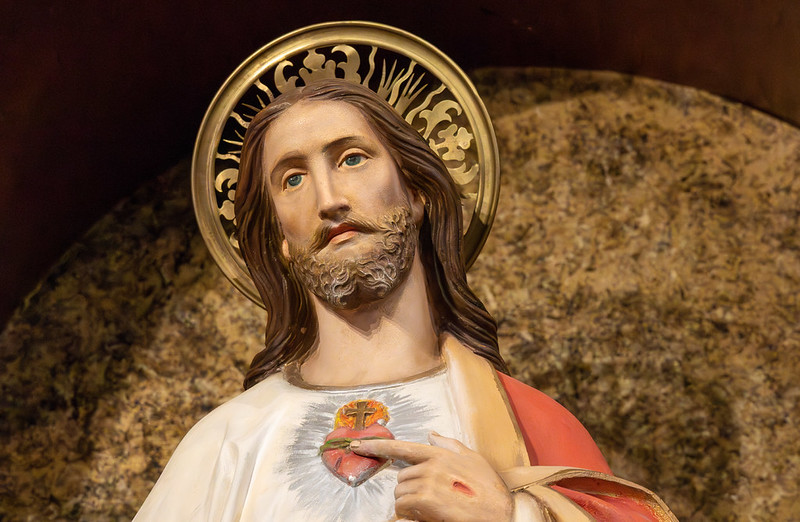

The Book of Proverbs, particularly Proverbs 8:22–31, presents Wisdom as a personified figure, intimately involved in God’s act of creation. Described as existing before the cosmos and delighting in God’s works, Wisdom is depicted as a co-creator alongside God. The Catechism of the Catholic Church (CCC) underscores this imagery, noting that Old Testament wisdom literature prefigures Christ, the eternal Word, who is the "Wisdom of God" (CCC 291). This passage lays a foundation for Catholic theology, linking the personified Wisdom to the divine identity of Jesus Christ.
Catholic tradition sees Jesus as the fulfillment of the Wisdom of God, a theme woven throughout the New Testament. In 1 Corinthians 1:24, St. Paul calls Jesus “the power of God and the wisdom of God,” directly connecting him to Proverbs 8. However, in 1 Corinthians 1:30, Paul expands this idea: “Christ Jesus, who became for us wisdom from God, and righteousness and sanctification and redemption.” The Catechism interprets this as Christ embodying divine Wisdom, through whom humanity is reconciled to God (CCC 623). While some scholars suggest Paul’s view draws from broader Jewish traditions, Catholic exegesis, as articulated by St. John Paul II, sees Paul’s language as affirming Christ’s divine role in creation (cf. Redemptoris Missio, 6).
A vivid example appears in Luke 11:49, where Jesus cites the “Wisdom of God” saying, “I will send them prophets and apostles, some of whom they will kill and persecute.” This alludes to the Wisdom of Solomon 7:27, which describes Wisdom entering holy souls to make them prophets and friends of God. St. Augustine, in his Sermons on the New Testament (Sermon 69), interprets this as Jesus identifying himself with divine Wisdom, acting with the authority of God the Father. The parallel in Matthew 23:34 reinforces this, as Jesus declares, “Behold, I send you prophets and wise men and scribes,” placing Wisdom’s words in his own mouth. The Catechism affirms this unity, stating that Christ, as the Word, speaks with divine authority (CCC 102).
The Epistle to the Hebrews deepens this connection. Hebrews 1:3 describes Jesus as “the radiance of God’s glory and the exact imprint of his nature,” using the Greek term apaugasma (radiance), which echoes Wisdom of Solomon 7:26, where Wisdom is “a reflection (apaugasma) of eternal light.” St. Thomas Aquinas, in his Commentary on Hebrews, explains that this term identifies Christ as the eternal Wisdom, consubstantial with the Father, through whom all things were made (cf. Summa Theologiae I, q. 34, a. 2). This alignment underscores Jesus’ divine role in creation and redemption.
In Second Temple Judaism, texts like the Wisdom of Solomon and Sirach portray Wisdom as a divine figure enthroned with God. Wisdom of Solomon 9:1–11 depicts Wisdom as present at creation, guiding humanity in righteousness, while Sirach 24:1–5 describes Wisdom emerging from God’s mouth and dwelling in high places. These texts, part of the Catholic deuterocanonical canon, profoundly influenced early Christian theology. The Catechism cites Wisdom of Solomon to affirm that God’s Wisdom orders creation toward salvation (CCC 295).
Some Jewish theologians equated Wisdom with the Torah, given their shared feminine grammatical form in Hebrew. However, Catholic tradition, following St. John’s Gospel, identifies Jesus as the Word (Logos) and Wisdom incarnate (John 1:1–3, 14). St. Irenaeus of Lyons, in Against Heresies (Book IV, ch. 20), argues that Christ, as the eternal Word, fulfills and surpasses the Torah, becoming the true agent of creation and salvation. This shift, emphasized in Romans 3:21 and Matthew 5:17–20, reorients salvation from the Law to Christ, as affirmed by the Catechism (CCC 1965–1966).
The identification of Jesus with Wisdom was pivotal at the Council of Nicaea (325 CE), where the Church clarified Christ’s divinity. The Arians, citing Proverbs 8:22—“The Lord possessed me at the beginning of his work”—argued that Wisdom (and thus Jesus) was a created being, interpreting the Hebrew verb qanah as “created.” Orthodox theologians, including St. Athanasius, countered that qanah means “brought forth,” as seen in Genesis 4:1, where Eve “brings forth” Cain. St. Athanasius, in On the Incarnation (ch. 2), explains that this term denotes eternal generation, not creation, preserving Christ’s co-eternality with the Father. The Nicene Creed, as affirmed by the Catechism (CCC 465), declares the Son “begotten, not made, consubstantial with the Father,” solidifying Jesus as the eternal Wisdom.
Catholic theology, rooted in Scripture and Tradition, presents Jesus as the embodiment of divine Wisdom, fulfilling Old Testament imagery from Proverbs and the deuterocanonical books. From St. Paul’s writings to the Gospels and Hebrews, Christ is revealed as the co-creator and redeemer, surpassing the Torah as the source of salvation. Supported by the teachings of St. Augustine, St. Thomas Aquinas, and St. Athanasius, and codified in the Nicene Creed, this understanding shapes the Church’s vision of Christ’s divine identity. As the Catechism affirms, Jesus, as Wisdom incarnate, is “the way, the truth, and the life” (CCC 459), guiding humanity to the Father.
This article is written by Steven Zimmerman, a member of the Basilica of San Albino.